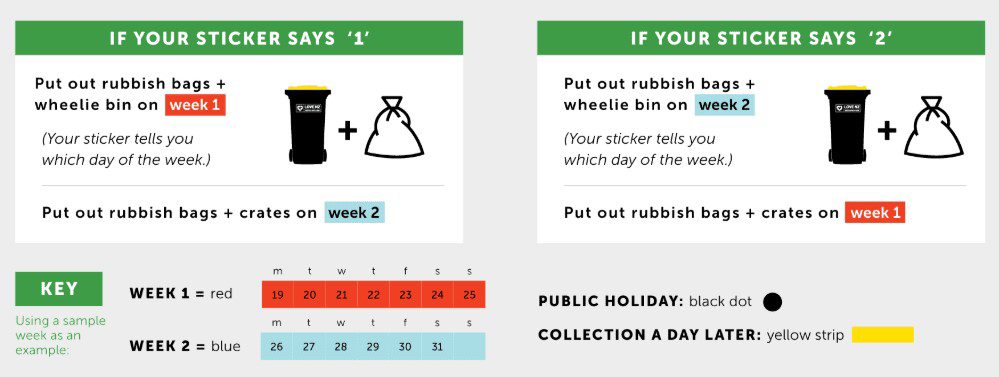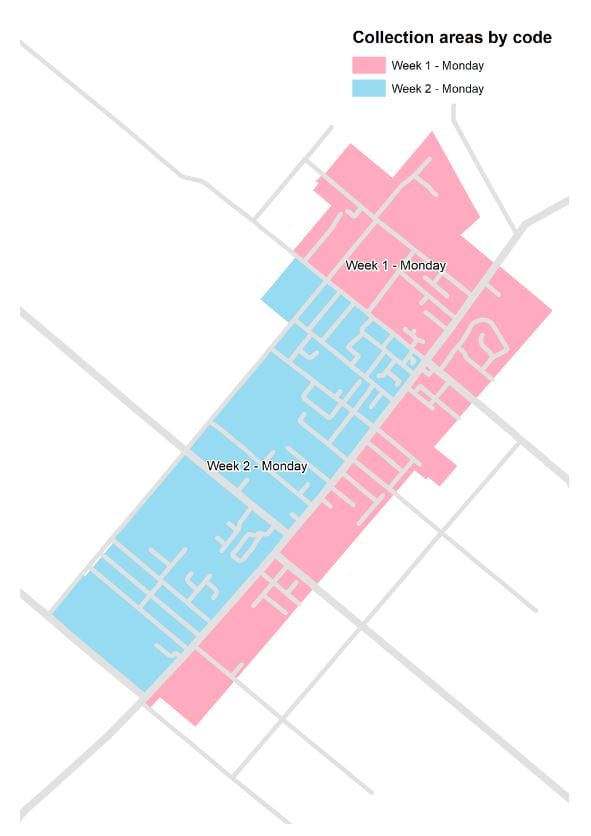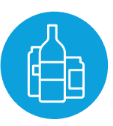Recycling & Waste
Last updated: 15 Apr, 2025 11:39am
Our Commitment
Calendar
Kerbside Collections
What can I recycle?
Our Recycling and Zero Waste Commitment
Our key focus is to reduce the total quantity of waste sent to class 1 landfills from 600kg to 400kg per person per annum by 2026. We are confident that with residents, businesses and councils working together we can achieve this goal.
Urban Refuse Collection
A domestic refuse collection is carried out once a week for urban Carterton residents on Mondays. Where a public holiday falls on Monday the collection will take place the following day.
Rubbish must be in an official bag which can be purchased from the council office, local supermarket, and selected dairies.
The bag charge includes the cost of collection and disposal.
Kerbside Recycling and Sustainability
How does it work?
Both recycling crates (green and maroon) can be used for glass only and your recycling wheelie bin can be used for all other recyclables [clean tins, cans, paper, cardboard, plastic bottles and containers numbered 1, 2, and 5, such as drink, water, and milk bottles].
Your glass crates and the recycling wheelie bin will be collected on alternating weeks.
This is why we’ve numbered the bins with a 1 or 2, which corresponds to the calendar in the booklet which came with the wheelie bins. Bins numbered 1 are the red line on the calendar, and bins numbered 2 are the blue line.

Key things to remember
- Your kerbside recycling and general waste are collected on Mondays.
- Must be out by 7.30 or it stays dirty!
- Forgotten whether it’s week one or week 2? Check out the top bar on the homepage of our website cdc.govt.nz
- All containers are best rinsed, lids off and not squashed please.
Visit wairecycle.nz for more information.
Collection Areas
The map below shows weekly collection areas in urban Carterton.

What Can I Recycle?
As well as kerbside collections, our Transfer Station has a range of options for recycling.
A quick reminder of what can go into your kerbside recycling
The Ministry for the Environment is introducing nationwide recycling standards to make sure each council is collecting the same recycling across the country. This means no matter where you are in the country recycling from home will be the same. There will be no difference to the recycling in Carterton following the standardisation rules that take effect.

What goes in my crate?
✓ Glass bottles and jars only.
𝕏 No lids.

What goes into my recycling bin?
Plastic bottles, trays, and containers numbered 1,2 and 5 only.
Food and drink cans cleaned.
Paper and cardboard including those pizza boxes but remove the food first.

Items not for recycling
- Lids for bottles, jars and containers
- Plastics numbered 3,4,6 and 7
- Compostable packaging and containers
- Nappies and sanitary products
- Batteries – these can be taken to the recycling stations throughout Wairarapa.
- Soft plastic – plastic that can be scrunched into a ball such as bread bags, bubble wrap, and chippie packets, these can also be taken to any of our recycling stations.
- Fabric and clothing
- E-waste – can be taken to Carterton, Masterton, and Martinborough transfer stations.
- Polystyrene
- Coffee cups and lids.
- Aerosols
